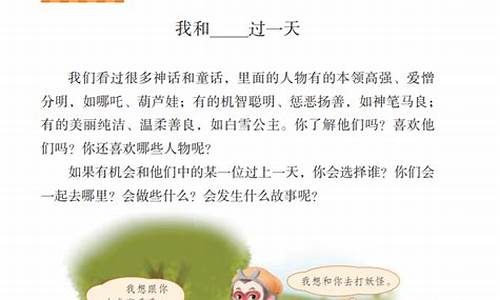您现在的位置是: 首页 > 毕业论文模板 毕业论文模板
晨读文章推荐_好文推荐晨读美文
tamoadmin 2024-09-19 人已围观
简介1.英文晨读励志美文2.斗半匠语文晨读美文怎么样3.晨读感悟从未想到过的“永别的艺术”4.晨读英语美文:塑造我的儿子 英语是目前世界上通用程度最高的语言,也是人们参与国际交流和竞争必备的技能。下面是我带来的每日英语晨读美文,欢迎阅读! 每日英语晨读美文篇一 Causes Are People by Susan Parker Cobbs IT HAS NOT b
1.英文晨读励志美文
2.斗半匠语文晨读美文怎么样
3.晨读感悟从未想到过的“永别的艺术”
4.晨读英语美文:塑造我的儿子

英语是目前世界上通用程度最高的语言,也是人们参与国际交流和竞争必备的技能。下面是我带来的每日英语晨读美文,欢迎阅读!
每日英语晨读美文篇一
Causes Are People
by Susan Parker Cobbs
IT HAS NOT been easy for me to meet this assignment. In the first place, I am not a very articulate person, and then one has so many beliefs, changing and fragmented and transitory beliefs---besides the ones most central to our lives. I he tried hard to pull out and put into words my most central beliefs. I hope that what I say won?t sound either too simple or too pious.
I know that it is my deep and fixed conviction that man has within him the force of good and the power to translate force into life. For me, this means that a pattern of life that makes personal relationships more important. A pattern that makes more beautiful and attractive the personal virtues: courage, humility, selflessness and love. I used to smile at my mother because the tears came so readily to her eyes when she heard or read of some incident that called out these virtues. I don?t smile any more because I find I he become more and more responsive in the same inconvenient way to the same kind of story.
And so I believe that I both can and must work to achieve the good that is in me. The words of Socrates keep coming back to me: ?The unexamined life is not worth living.? By examination we can discover what is our good and we can realize that knowledge of good means its achievement. I know that such self-examination has never been easy---Plato maintained that it was soul?s central search. It seems to me peculiarly difficult now. In a period of such rapid material expansion and such wide spread conflicts, black and white he become gray and will not easily separate.
There is a belief which follows this. If I he the potential of the good life within me and compulsion to express it, then it is a power and compulsion common to all men. What I must he for myself to conduct my search, all men must he: freedom of choice, faith in the power and the beneficent qualities of truth. What frightens me most today is the denial of these rights, because this can only come from the denial of what seems to me the essential nature of man. For if my conviction holds, man is more important than anything he has created and our great task is to bring back again into a subordinate position the monstrous superstructures of our society.
I hope this way of reducing our problems to the human equation is not simple an evasion of them. I don?t believe it is. For most of us it is the area in which we can work : the human area---with ourselves, with the people we touch, and through these two by vicarious understanding, with mankind. I believe this is the safest starting point. I watch young people these days wrestling with our mighty problems. They are much more concerned with them and involved in them than my generation of students ever was. They are deeply aware of the words ?quality? and ?justice? In their great desire to right wrong they are prone to forget that causes are people, that nothing matters more than people. They need to add to their crusades the warmer and more affecting virtues of compassion and love. And here again come those personal virtues that bring tears to the eyes.
One further word, I believe that the power of good within us is real and comes there from a source outside and beyond ourselves. Otherwise, I could not put my trust so firmly in it.
每日英语晨读美文篇二Keep the Innocent Eye
By Sir Hugh Casson
When I Accepted the invitation to join in "This I Believe," it was not-goodness knows-because I felt I had anything profound to contribute. I regarded it-selfishly, perhaps-as a chance to get my own ideas straight. I started, because it seemed simplest that way, with my own profession. The signposts I try to follow as an architect are these: to keep the innocent eye with which we are all born, and therefore always to be astonished; to respect the scholar but not the style snob; to like what I like without humbug, but also to train my eye and mind so that I can say why I like it; to use my head but not to be frightened to listen to my heart (for there are some things which can be learned only through emotion); finally, to develop to the best of my ability the best that lies within me.
But what, you may say, about the really big problems of life- Religion? Politics? World Affairs? Well, to be honest, these great problems do not weigh heily upon my mind. I he always cared more for the small simplicities of life-family affection, loyalty of friends, joy in creative work.
Religion? Well, when challenged I describe myself as "Church of England," and as a child I went regularly to church. But today, though I respect churchgoing as an act of piety and enjoy its sidelines, so to speak, the music and the architecture, it holds no significance for me. Perhaps, I don't know, it is the atmosphere of death in which religion is so steeped that has discouraged me-the greyards, the parsonical voice, the thin damp smell of stone. Even today a "holy" face conjures up not saintliness but moroseness. So, most of what I learned of Christian morality I think I really learned indirectly at home and from friends.
World Affairs? I wonder if some of you remember a famous prewar cartoon. It depicted a crocodile emerging from a peace conference and announcing to a huge flock of sheep (labeled "People of the World"), "I am so sorry we he failed. We he been unable to restrain your warlike ambitions." Frankly, I feel at home with those sheep-mild, benevolent, rather rehensive creatures, acting together by instinct and of course very, very woolly. But I he learned too, I think, that there is still no force, not even Christianity, so strong as patriotism; that the instinctive wisdom with which we all act in moments of crisis-that queer code of conduct which is understood by all but never formulated-is a better guide than any panel of professors; and finally that it is the inferiority complex, usually the result of an unhy or unlucky home, which is at the bottom of nearly all our troubles. Is the solution, then, no more than to see that every child has a hy home? I'm not sure that it isn't. Children are nearer truth than we are. They he the innocent eye.
If you think that such a philosophy of life is superficial or tiresomely homespun or irresponsible, I will remind you in reply that the title of this series is "This I Believe?-not "This I ought to believe," nor even "This I would like to believe?-but, "This I Believe."
每日英语晨读美文篇三Dreams Are the Stuff Life Is Made Of
By Carroll Carroll
I believe I am a very lucky man.
My entire life has been lived in the healthy area between too little and too much. I?ve never experienced financial or emotional insecurity, but everything I he, I?ve attained by my own work, not through indulgence, inheritance, or privilege.
Never hing lived by the abuses of any extreme, I?ve always felt that a workman is worthy of his hire, a merchant entitled to his profit, an artist to his reward.
As a result of all this, my bargaining bump may be a little underdeveloped, so I?ve never tried to oversell myself. And though I may work for less than I know I can get, I find that because of this, I?m never so afraid of losing a job that I?m forced to compromise with my principles.
Naturally in a life as mentally, physically, emotionally, and financially fortunate as mine has been, a great many people he helped me. A few meant to, most did so by accident. I still feel I must reciprocate. This doesn?t mean that I?ve dedicated my life to my fellow man. I?m not the type. But I do feel I should help those I?m qualified to help, just as I?ve been helped by others.
What I?m saying now is, I feel, part of that pattern. I think everyone should, for his own sake, try to reduce to six hundred words the beliefs by which he lives?it?s not easy?and then compare those beliefs with what he enjoys?not in real estate and money and goods, but in love, health, hiness, and laughter.
I don?t believe we live our lives and then receive our reward or punishment in some afterlife. The life and the reward?the life and the punishment?these to me are one. This is my religion, coupled with a firm belief that there is a Supreme Being who planned this world and runs it so that ?no man is an island, entire of himself The dishonesty of any one man subverts all honesty. The lack of ethics anywhere adulterates the whole world?s ethical content. In these?honesty and ethics?are, I think, the true spiritual values.
I believe the hope for a thoroughly honest and ethical society should never be laughed at. The most idealistic dreams he repeatedly forecast the future. Most of the things we think of today as hard, practical, and even indispensable were once merely dreams.
So I like to hope that the world need not be a dog-eat-dog jungle. I don?t think I?m my brother?s keeper. But I do think I?m obligated to be his helper. And that he has the same obligation to me.
In the last analysis, the entire pattern of my life and belief can be found in the words ?do NOT do unto others that which you would NOT he others do unto you.? To say ?Do unto others as you would he others DO unto you? somehow implies bargaining, an offer of for for for. But to restrain from acts which you, yourself, would abhor is an exercise in will power that must raise the level of human relationship.
?What is unpleasant to thyself,? says Hillel, ?THAT do NOT unto thy neighbor. This is the whole law,? and he concluded, ?All else is exposition.?
英文晨读励志美文
很久没有这样了,没有像今天这样,感到太阳是如此亲切。
雨是夜里下的,有风和闪电。都不大,不是轰轰烈烈。但仍不失雨夏天的个性,利爽,干脆,直率,说来就来,说去就去,没有黏黏糊糊,缠缠绵绵。天亮后,已是一穹的清朗。从空气的湿润,院坝的深暗,树叶上的晶莹中,还可以追忆雨的足迹;而风和闪电,则过就过了,没有留下痕迹。就是在这时,我发现了一个笑脸,太阳的笑脸。嫩红,新鲜,喜气,真诚,复杂,表情丰富,富有生命的动感与活力。晨早的太阳,以它一天运转中最珍贵的纯洁与本真,亲切而随和地迎着我,和我刚走出的梦境。一种温暖浸润到了全身,不仅仅是体感的,而是心灵的。我感到一种莫名的幸福与欣慰。
乡村的觉睡得安静,昨夜的风雨,不过是一种催眠。我的醒来是鸟儿的惊扰,与风雨和阳光无关。阳光什么时候溜进了窗户,停留在我的脸上,抚慰与亲近,都是不知不觉的。现在想来,那鸟儿与太阳,还有这眼紧闭的窗,应该都是有某种约定的。不然,和我一样贪睡的鸟儿,为什么那么早起,恰如其时地鸣叫,反反复复,不厌其烦,直至我的眼光,与阳光照面;紧闭的窗为什么就留下了一条细长的缝。一种珍贵的拥有,往往得之于偶然,比如今天。虽然,每天都有日出日落,天亮天黑。但是,我们却不一定每天都拥有晨光里的那一份至珍,并不是每天都以开眠的本真,与同样本真的太阳相视。我们往往习惯把梦境嫁予黑夜,把自己的情感与情绪,维系于一份虚妄的存在,以至于在习惯中养成了对身边真实存在的忽略。当错过了最美好的时光,在庸常中与阳光邂逅时,我们并不知道,彼此都已染上了尘间的俗气;或者,误认为阳光和笑脸,都是与生俱来的拥有,以至于忽视了追求本真的勇气,忽视了晨光里的珍惜。
四川平原多雾,太阳是很少清晰露脸的,何况清晨。人们通常说的白天,不过是太阳的光线,艰难地穿过雾障,在混沌中的一种呈现。比如此时。阳光是混沌的,经过雾和尘的过滤;本真的太阳躲在云后,阳光穿过忽厚忽薄的云,忽明忽暗地照在地上,我们便有了阴晴冷热。正置夏末,正是农人默念“秋前十天无谷打,秋后十天满坝黄”的时候。季节和阳光,正在夏与秋的更替中办理交接。盛夏的余威还在,此时的阳光,应当更接近冈察洛夫置身的圣彼得堡。幸福与痛苦总是关联的,骄阳给原野增添着生气,却以难耐的酷热折磨着城市;稻秧拔节了,街道旁的花草却奄奄一息。街道,楼房和银行门口的石狮,都晒得冒烟;树荫下的狗伸长着舌头,哼哼地东张西望;街上的行人用手遮掩着额头,汗水直往眼里钻。我躲在室内,从办公室到家,企图用开足的空调与酷热抗衡,谁知那人为的凉,却透过浅薄的皮肤,钻进了我的身体里。浑身发冷,虚汗直冒,赶紧去打点滴。
今天却不同。晨早的阳光,不仅让我领略了一个笑脸,而且让我能够走过阳光,与太阳会面。
鸟儿仍在叫,声音短促而零碎。阳光照在脸上,鲜嫩而透明。这应是一缕背叛的阳光,安祥,柔和,体贴,温婉,不烈不毒,不骄不酷,超越于时节。怎能不赶快起床。这样躺着,将身体缩进被空调吹凉的被窝里,伸出一张期待的脸,去面对阳光,企图鱼与熊掌皆得。人怎么可以这样贪婪,这样将息自己,这样没有章法地生活。窗是开阔的,几乎占据了整个一面墙壁的大半。我说的是面向东方,面朝田野和思蒙河的那面墙。只是那开阔没有显露,而是被厚厚的窗帘遮蔽着,那条细长而狭窄的缝,绝不是我昨晚有意留的,没有想到要让它存在,好邀约晨早的阳光唤醒熟睡的我。本意就是遮蔽,遮蔽昨夜的黑暗----黑暗也需要遮蔽吗,我突然感觉到,一个被忽略了的滑稽与迷惑,但我们却每天都在重复,心安理得,重复了很多年;遮蔽白天的阳光,才应该是本意,人们习惯于闭眼面对黑夜----只是,幸好这种遮蔽不太成功,留下了一条缝,让我得以与晨早的阳光亲近,得以贴近笑脸,领略笑脸,并从中感受到了许多的温暖与亲切。
晨早的太阳很低,就站在细长的地平线;而所谓地平线,也就是东山顶着的那一线天。低矮的太阳把视线拉直,目光从窗户投出,穿过近处的原野,和远处的思蒙河,以每秒30万千米的速度。视线被一路抚慰,护送,珍惜。原点是一棵树,在阳光映照下,眼前的树,更远处的东山,都是一种平视,而不是仰望,不是平时太阳行走于天庭,让我们感觉高高在上。就这样行走,以平视的投影,营造一种立体的效果。这才意识到,平行其实是一种宽容。在这种宽容中,再茂密的树冠,也要为阳光让路,把遮蔽留给云和天,或者迷失的飞鸟。那树树干粗壮,皮肤龟裂,裂缝被沧桑填充,却没有填平。填平裂缝的是阳光,但那只是在阳面,而阴面就是另一回事。事实上,在阳光的映衬下,树干阴面的裂痕,显得更加惨烈。这棵叫柳杉的树,已在院坝边守望了几十年,早已习惯于以不同的脸,面对这繁杂的世界,阳面和阴面,它都显得平和而从容,一如老朋友见面。
再往前,就是原野,思蒙河和东山了。循着柔和的光线看过去,它们其实是很难细分的。更令人感到,那是一幅画,逆光反转成像的。稻谷,河流,山脉,和与山头举眉齐案的太阳,都是抽象的符号,被哲学家神秘化了的形而上的符号,人们似乎可以捕捉到它的神,却反而很难把握它的形。恍惚间,一张害羞的笑脸,正在看山水;看山水的你我,都在他同一个视线内。当然,如果我们也看他,便会发现,不同的还是它的容貌。说的是太阳。是有特定条件的;要不是那些特定的时间,地点,人物,,结果,一切新闻要素,都锁定了一个事实,对这刚刚冒出地平线的太阳,你是会误读的。你也许会确实不把它当成太阳,而当成一张笑脸,父母的,朋友的,亲人的,甚至仇人的。总之,一切人间富有的美好与丑陋,亲切,温暖,微笑,鼓励,体谅,宽容,善良,以及狭隘,自私,计较,悲怆,痛苦,复杂,单纯,都可以从这张笑脸中找到答案。
斗半匠语文晨读美文怎么样
英文晨读励志美文如下:
My day in the sun had arrived - my magnum opus would be revealed. I had just delivered a memorized speech that I had labored over for weeks, and I was about to learn how the panel judged my performance. The polite but sparse audience leaned forward in their folding chairs. A hush fell across the room. The drum rolled (in my mind, anyway).
终于该我闪亮登场了——我的“大作”将公之于众。我刚刚发表了一段脱稿演讲,这篇演讲稿我卖力准备了好多个星期呢!马上就能知道评委们将如何给我的表现打分了。稀稀拉拉的观众们坐在折叠椅 上,礼貌地往前探着身子。全场鸦雀无声,揭晓结果的鼓点急促地响起(起码在我头脑中是这样)。
The contest organizer announced the third-place winner. Alas, the name was not mine. Then he read the second-place winner, and once again it was not me. Either I was about to bask in the warmth of victory or rue the last several months spent preparing. While neither of these came to pass, my heart felt closer to the latter.
大赛组织者宣布了季军获得者。哎呀,不是我的名字。接着他又宣读了亚军获得者,还不是我。最后,真相大白的时刻到了。我要么将沐浴在胜利的温暖幸福中,要么将为筹备的几个月而感到后悔。虽然还未揭晓,但我预感结果更接近于后者。
晨读感悟从未想到过的“永别的艺术”
好。
1、效果好。斗半匠《语文晨读美文》遵循337记忆法,阅读缓坡而上,独特的多种形式的诵读,激发语言潜能,提升语言素养和母语能力,让孩子们在阅读中开启天赋之门。
2、遵循教材。斗半匠《语文晨读美文》紧扣“部编本教材,同步人教版课本,可以夯实课堂所学的知识,加入教材必背内容,教材学到哪,晨读美文读到哪,既能熟记教材要求背诵的内容,又能积累知识。
晨读英语美文:塑造我的儿子
我们都知道,死亡是我们每个人无可逃避的必然结局,但是,我们对死亡这个话题却很避忌,似乎不提就不到来一样。
晨读毕淑敏的一篇题为《永别的艺术》的美文,对死亡多了一点思考,对生命多了一点感悟。
我们平时就算讨论死亡,更多的是讨论死亡本身,却很少提到身后属于自己的私事。比如,平生写下的日记、最心爱的藏书、曾经游山玩水的照片、陪伴了大半辈子的旧家具……我们不在了,曾经陪伴我们的那些物品还在。怎么办呢?我们不是名人,我们的身后物不会进博物馆而得到妥善保管,那到底该怎么处理?
这个难题多半会留给我们的孩子,他们由于思念而不舍,却又不知道该置于何处,随着时光的流逝,他们在不断的挣扎与隐痛中,慢慢舍弃。正如毕淑敏在文中所说,“当我认真思忖死后的技术性问题时,感觉到的不再是对死亡的畏惧,而是对不幸参与料理这一事物的人,充满歉意。”
文中有一段对女儿收拾父母遗物的描述:阁楼里像个旧仓库一样,到处都是杂物,旧书和电话簿摞得比人还高,有些样式过时的服装连包装都没拆,还有陈旧的卫生纸、洗涤剂、质地已发脆的布料……但是房地产证、银行存折等重要物件,却不知道藏哪里去了。最后她把所有杂物,包括家具都处理了,可最难办的是,母亲生前自费出版的100多册自传,无处处置,最后无奈地怀着歉意销毁了,只留下四本留念。
一想到现在我所拥有、所珍视的一切,将会成为生命凋谢所留下的垃圾,就再次觉得“拥有是一种负担”,而且死后这种负担会转移到我们后代的身上,这是何其沉重的一种负担。这时候,特别崇尚极简主义,“生不带来,死不带去”,我们又何必那么在乎得失呢?
自从阅读了《极简》一书,很少在淘宝上乱买东西,甚至衣服都很少买了。其实,拥有再多衣服,我们最常穿的也就是那么几件,实在没必要买那么多,给衣柜减负势在必行。今天再读此文,这种感觉更加的强烈,连将来家里装修的风格都在头脑里换了样,比原来考虑的还更要简约。
阅读此文,第一次清晰地感受到了生人对死亡的准备,有准备的人不会为孩子们增添任何麻烦,而无准备、生前又喜欢铺张浪费的人死后会给孩子留下很多麻烦,而且很可能自己曾经有意隐藏的个人隐秘也会毫无保留地曝光在生人面前。所以,“只有更明智地摆下人生的最后棋子,才能更有质量地获取完整的尊严”。
但是,死亡大多是在某一个不可知的时辰,与我们正面相撞,无论多么伟大的人都要臣服于它麾下。所以在文中作者指出,经常想想自己明天或者最近就可能死,其实是很有益处的。首先,有利于感悟生命,体验到生命的脆弱,会格外地珍惜今天,活在当下;其二,更有利于抓紧时间,我们常常以为自己坐拥无限时光,可以任意抛洒,而死亡正好给了我们一个不由分说的倒计时,让我们更珍惜生命中的每一分每一秒;其三,有利于我们善待他人,快乐自身,因为“死亡使真情凸现,友情长存”。
既然,“死亡是不讲情面的伴侣”,而且经常想想它又有那么多好处,何不未雨绸缪,常想想它?
恳求你赐给他谦卑的心,使他永远记得,真正的伟大是单纯,真正的智慧是坦率,真正的力量是温和。下面是我为大家带来英语经典美文:塑造我的儿子,希望大家喜欢!
Build me a son, O Lord, who will be strong enough to know when he is weak, and bre enough to face himself when he is afraid; one who will be proud and unbending in honest defeat, and humble and gentle in victory.
主啊!求你塑造我的儿子,使他在软弱时,能够坚强不屈;在惧怕时能够勇敢自持,在正常的失败中,毫不气馁;在光明的胜利中,仍能保持谦逊温和。
Build me a son whose wishes will not take the place of deeds; a son who will know Thee... and that to know himself is the foundation stone of knowledge.
恳求你塑造我的儿子,不至空有幻想而缺乏行动;引领他认识你,同时让他知道,认识自己,才是一切知识的基石。
Lead him, I pray, not in the path of ease and comfort, but under the stress and spur of difficulties and challenge. Here, let him learn to stand up in the storm; here let him learn compassion for those that fail.
我祈求你,不要使他走上安逸、舒适之途,求你将他置于困难和挑战的磨练和激励中,求你引领他,使他学习在风暴中挺身站立,并学会怜悯那些在重压之下失败跌倒的人。
Build me a son, whose heart will be clear, whose goal will be high, a son who will master himself before he seeks to master other men; one who will reach into the future, yet never forget the past.
求你塑造我的儿子,求你让他有一颗纯洁的心,并有i在大的目标;使他在能指挥别人之前,先懂得驾驭自己;当迈入未来之际,永不忘记过去的教训。
And after all these things are his, add, I pray, enough of a sense of humor, so that he may always be serious, yet never take himself too seriously. Give him humility. so that he may always remember the simplicity of true greatness, the open mind of true wisdom and the meekness of true strength. Then, I, his father, will dare to whisper he not lived in vain."
在他,有了这些美德之后,我还要祈求你赐给他足够的幽默感,以免他过于严肃,还苛求自己。恳求你赐给他谦卑的心,使他永远记得,真正的伟大是单纯,真正的智慧是坦率,真正的力量是温和。如此,我这作父亲的,才敢低声说:"我没有虚度此生。 "








